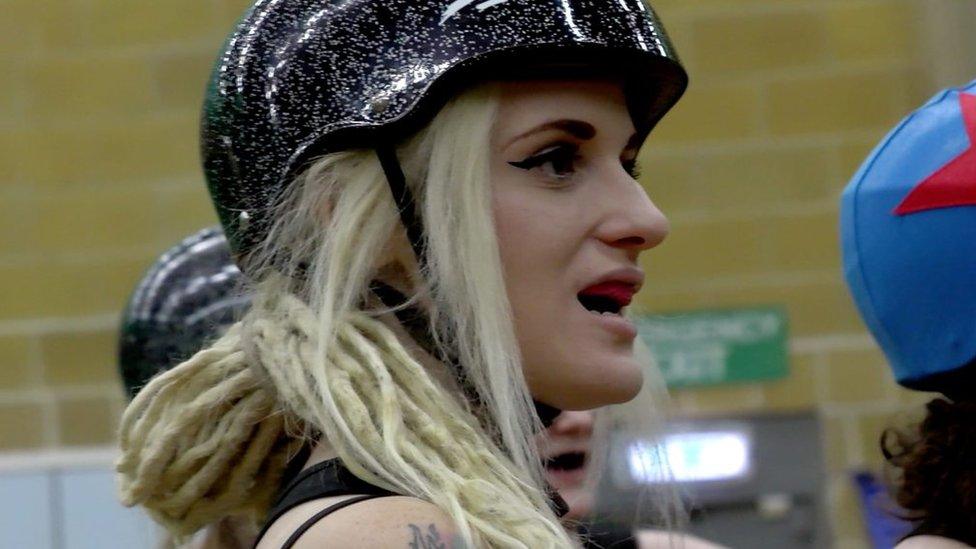Covid: Roller skating booms in Bristol in lockdown
- Published
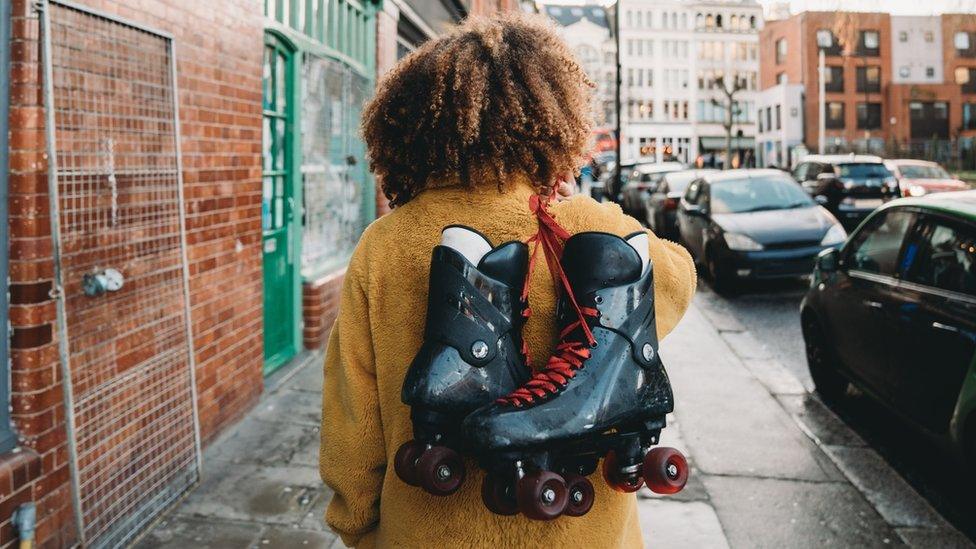
Roller skating has seen a revival in the UK as people turn to solo sports in lockdown
Roller skating has surged in popularity during lockdown as people searched for solo sports. The craze has taken off on social media, bringing it to a new generation. But did you know, the trend has its roots in hardship, segregation and racism?
Some skate retailers have reported an 800 per cent increase in sales since the start of the pandemic in several of their lines.
Google trends reveals that searches for roller skating-related content rocketed in May 2020, right around the time a TikTok video of American actor Ana Coto roller-skating, external and an Instagram film of German skater Oumi Janta went viral, with more than 3m views.
Lindsay Griffin, founder of BUMP Rollerdisco in Bristol, had one of her busiest weekends in sales directly after Coto posted her video.
"We sold 50 pairs of skates that weekend," said Ms Griffin, who runs the only mobile roller-disco company in the city.
"I guess it is because during lockdown more people were on social media and looking for new hobbies that could be done during the pandemic."
She set up BUMP first in Bristol, where a small but vibrant community has been growing in recent years, later expanding to London and elsewhere."
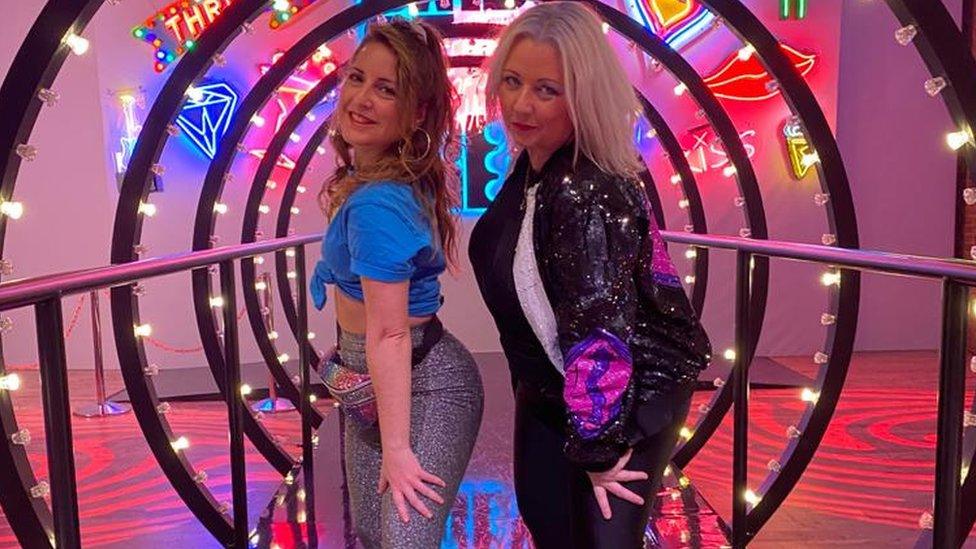
Lindsay Griffin (right) is the founder of Bump Rollerdisco
But fans of the sport said skating was enjoying a boom even before the pandemic and has a history stretching back to the segregation era in America.
Jeremiah Allman, 37, from St Pauls in Bristol, said: "Something you realise is that we are riding the coattails of a beautiful scene that has developed out of hardship, segregation and racism.
"There wouldn't be the skate scene we have today if it wasn't for the equality black people had to fight for. "

'History the reason for boom'
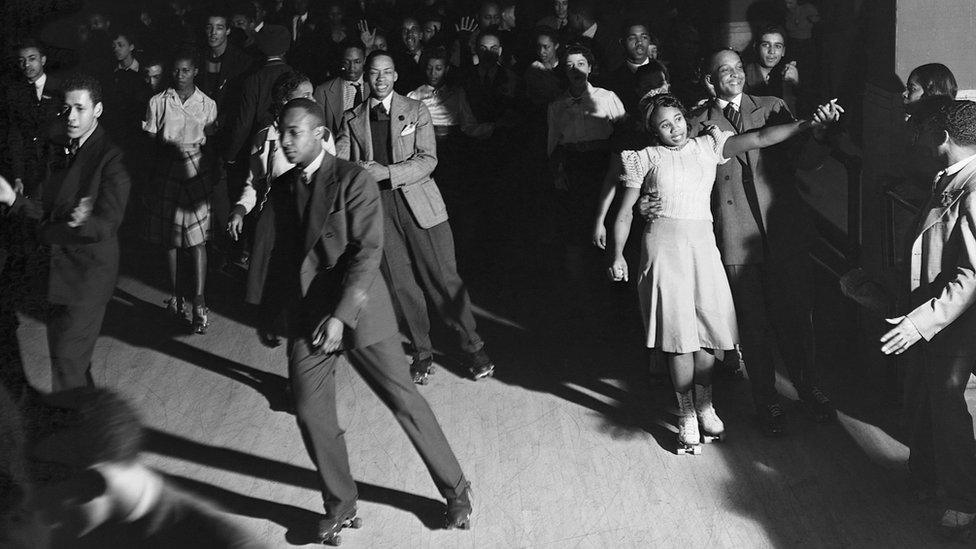
Roller skating has remained hugely important to African-American communities in the United States
The sport has long been tied to Black American social movements going back to the desegregation era of the 1950s and 60s, when skate rink owners excluded African-American skaters.
As a result, many black owners set up rinks and each state developed its own roller-dancing style, some billed as events like Rhythm Nights and Soul Nights.
Roller rinks are where hip-hop artists like N.W.A and Salt-N-Pepa got their first airing in the 1970s and 80s when they couldn't perform elsewhere.
Mr Allman, who has been skating since 2013, said he was proud of that history.
"The skate scene has begun to experience massive growth and is mainly focused around rhythm or dance skating which originated out of black culture and the limited access to rinks black people were able to enjoy," he said.
"The history of roller skating is the reason for the current boom."
Accessible to all
A ceramics tutor by day, he spends hours of his free time skating at Bristol's Millennium Square and said it brings him "a lot of peace".
"There're so many inaccessible or over the top things but skating is accessible to almost everyone.
"It's [skating is] something people can relate to and turn to when you're happy or when you're sad, it's always there.
"I think it's amazing so much positivity, opportunity has been created out of the current boom."
In 2018, he and a group of London skaters travelled to Detroit to attend the iconic Soul Skate festival, a weekend which attracted thousands of skaters.
"I'd never seen so many black people be able to be together and not be stigmatised," Mr Allman said.
"It was the most beautiful thing I've ever seen."

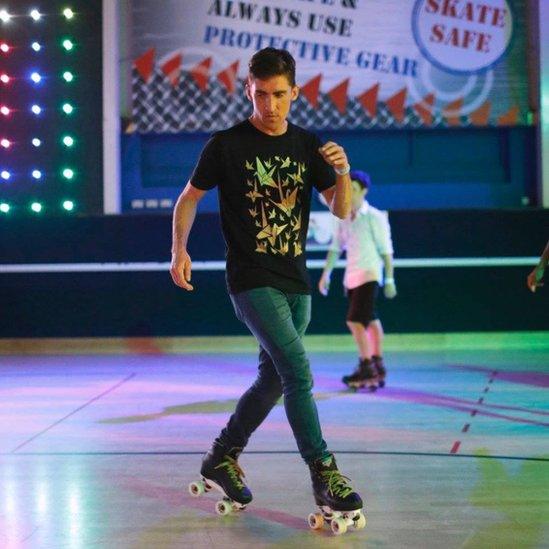
Paddy Mitchell became a skating instructor after taking up the sport in 2016
But even before lockdown, roller skating was "really starting to boom", said Paddy Mitchell, who runs the Skate Temple Bristol Facebook page, which has more than 800 members.
He discovered the sport late in 2016 after going to a BUMP roller disco night and has since become a skating instructor in the city.
"I was completely blown away by it," he said. "I've always loved dancing and came from a background of raves in my youth."
After getting the skate "bug", Mr Mitchell travelled to Skate Love Barcelona in 2018, Europe's largest roller-dance event, which attracts thousands of skaters from around the world.
Shortly afterwards he began arranging regular local meet-ups.
Millennium Square is a popular hotspot for skaters of all kinds but to skate in a rink, they meet at Bath Pavilions, built in the 19th Century and one of the oldest rinks in the country.
"It's a really important space for us because it's one of the only rinks left in the area," Mr Mitchell said.
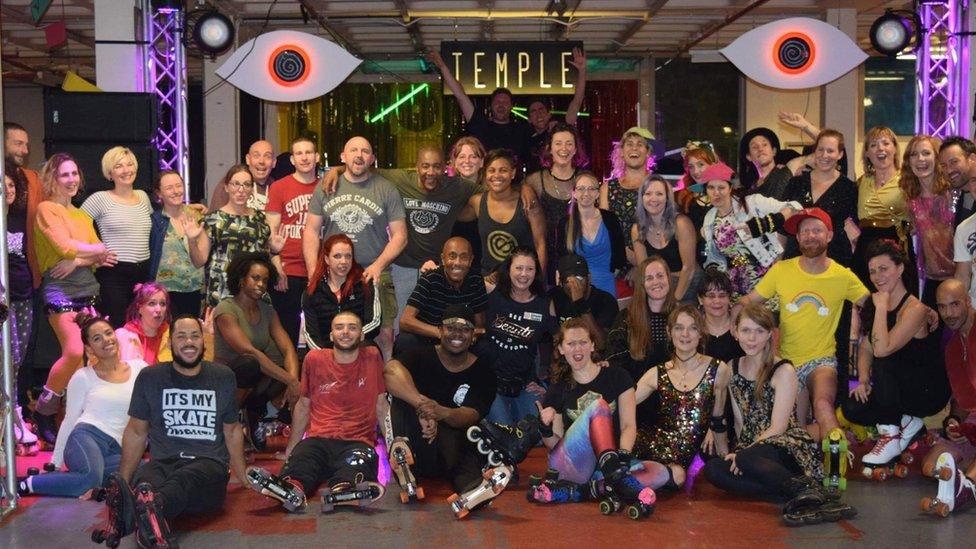
Skaters enjoy an event organised by Paddy Mitchell at Temple in Bristol
In 2019, he estimated that about 15 skaters from Bristol attended Skate Love Barcelona. With last year's festival cancelled due to Covid-19, he hopes more will go this year.
He hopes new skaters will absorb the culture and history of skating rather than just taking part in the sport because it is trendy.
He said: "We've got this generation of skaters who have come into it from a very different angle.
"The atmosphere, the music and the vibe is so different [on the rink]. There is this whole sort of world they have not experienced and it's vital for skaters.
"Rinks are really the lifeblood of our scene, especially in the UK where it rains for a lot of the year."
Fix8 Rollerdisco in London Wembley and Sk8city in Harrow are popular destinations, but Mr Allmann insists Bristol is "where we really vibe".

Jeremiah Allman (second from left) attended the Soul Skate festival in Detroit with some skaters from London in 2018
But the influx in skaters has made pre-existing challenges more prominent.
"There's never really been enough spaces to start with anyway," Mr Mitchell said.
"We're very lucky that we've got Millennium Square and that We the Curious, who run it, give us a lot of support."
One Bristol skater in the Facebook group set up an open-source interactive map, external identifying good flat-ground skating spots and skate parks, which people can feed into.
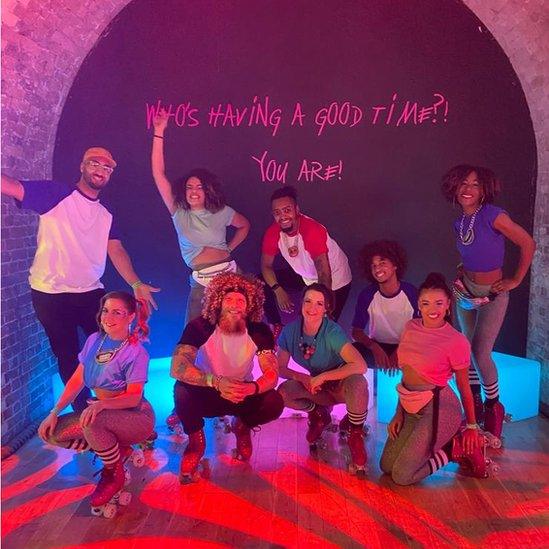
Mr Allman (top left) pictured with other BUMP crew members
Looking to the future, Ms Griffin hopes to bring a fixed roller-skating rink to Bristol.
Meanwhile, Mr Mitchell, in collaboration with other skaters, plans to set up a local skating committee group to help secure funding for future flat-ground skating spaces.
"It's such a positive sport and pastime," he said.

Follow BBC West on Facebook, external, Twitter, external and Instagram, external. Send your story ideas to: bristol@bbc.co.uk , external
Related topics
- Published29 January 2021
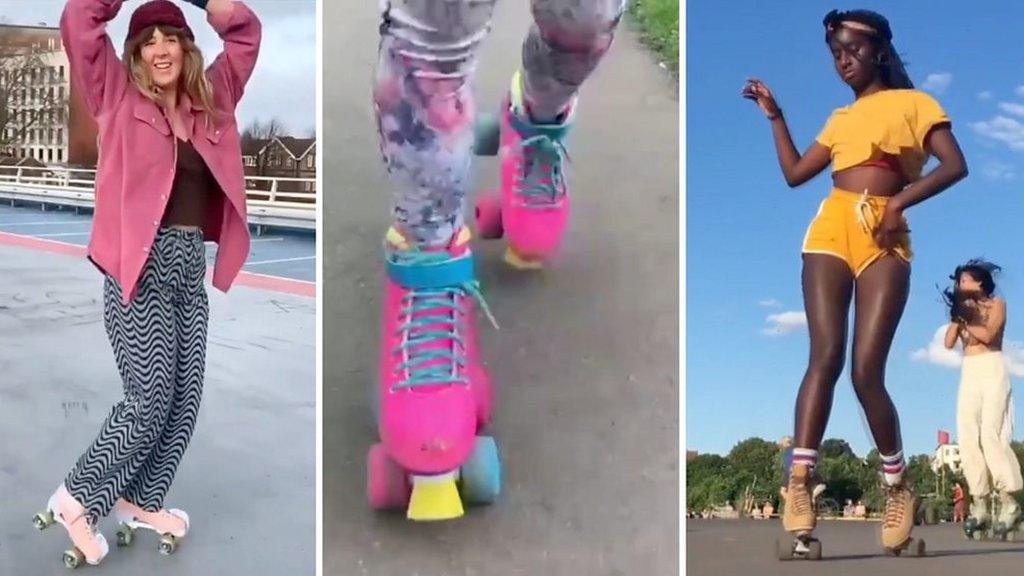
- Published26 March 2021
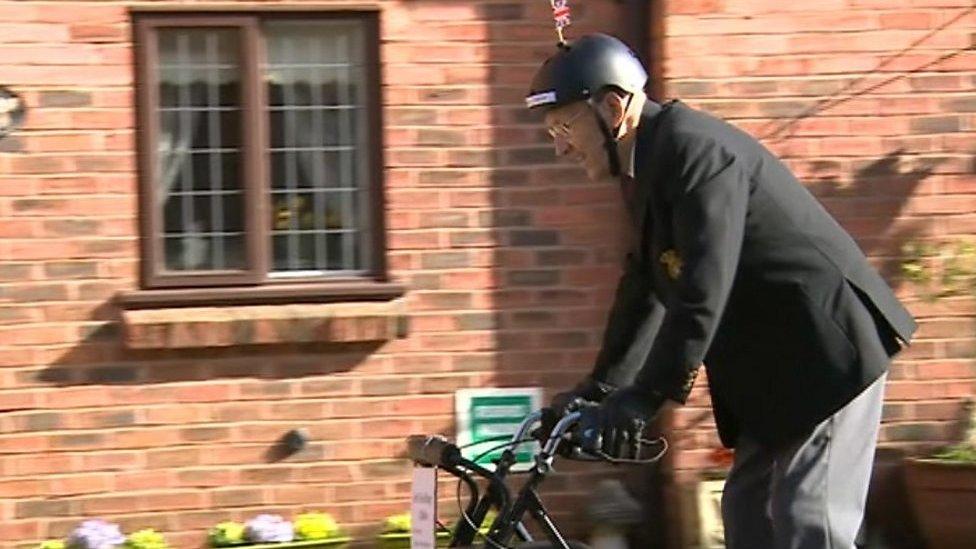
- Published27 October 2019
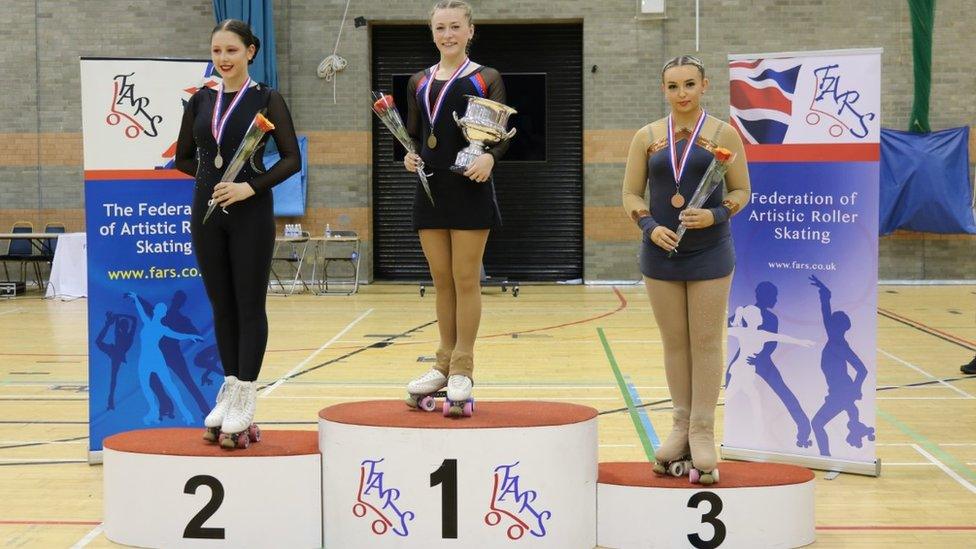
- Published29 June 2019
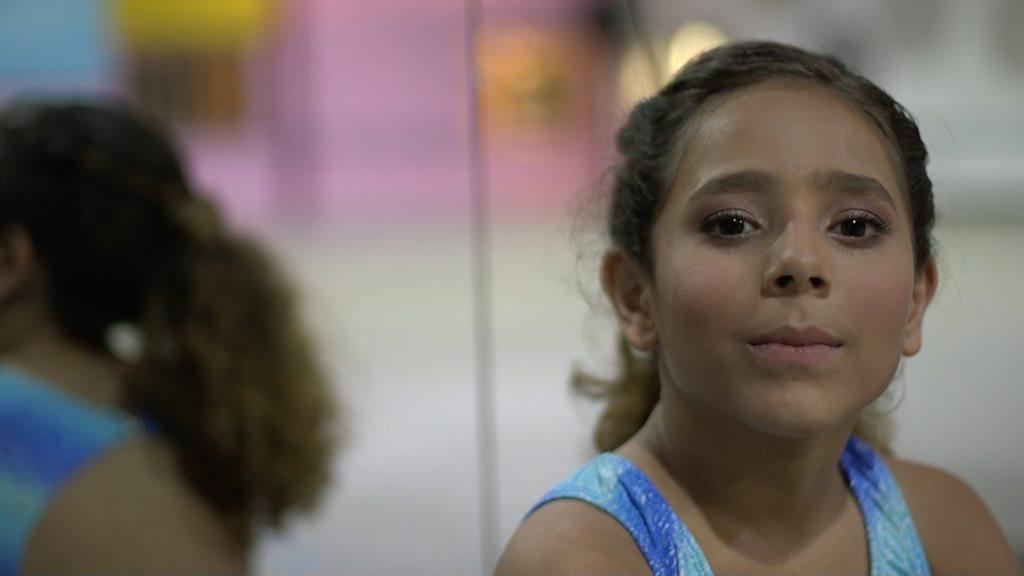
- Published17 May 2019
